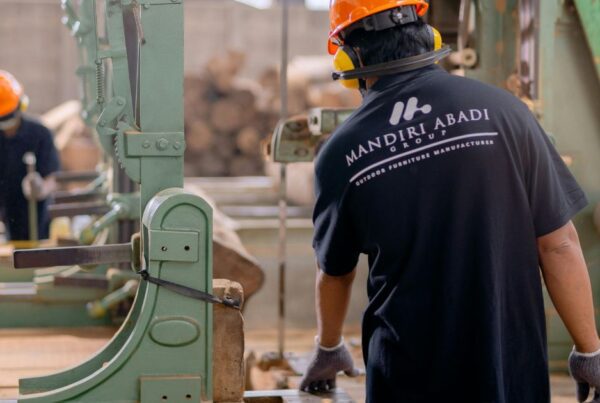Starting a business in Florida as an entrepreneur from South America can be one of the most rewarding moves you ever make. With its proximity to Latin America, strong international trade infrastructure, and bilingual business culture, Florida, especially Miami, is a natural bridge between South America and North America.
But when it comes to setting up your business properly and legally, there’s a roadmap you need to follow. From your visa status to contracts, trademarks, and licenses, skipping a single step can cost you time and money later.
Below, we’ll walk through a clear, practical checklist, designed for entrepreneurs from South America who are ready to turn their ideas into a thriving business in Florida.
Step 1: Confirm Your Visa or Immigration Status
The very first step is to ensure that your visa or immigration status allows you to own or operate a business in the United States. This is where many foreign entrepreneurs make mistakes.
Common visas for business owners:
- E-2 Investor Visa – For individuals from treaty countries (including most South American nations) who invest a substantial amount in a U.S. business.
- L-1 Visa – For those expanding their existing business into the U.S. by opening a branch, subsidiary, or affiliate.
- EB-5 Visa – For investors who make a qualifying investment (typically $800,000 or more) that creates at least ten jobs in the U.S.
- H-1B Visa Holders – Can have ownership interests in a company under specific conditions, though not always the best fit for entrepreneurs.
If you’re still exploring your visa options, speak with an immigration and business attorney who understands both the legal and practical aspects of launching a company as a foreign national.
Step 2: Choose the Right Business Structure (LLC vs. Corporation)
Once your immigration status allows you to do business, you’ll need to form a legal entity in Florida. The two most common structures are:
- Limited Liability Company (LLC): The most flexible option for small and medium-sized businesses. It protects your personal assets and has fewer administrative requirements.
- Corporation (C-Corp or S-Corp): Often used for larger companies or those seeking outside investors.
For most international entrepreneurs, an LLC is the preferred choice because it’s simpler to manage and offers strong liability protection. However, the best structure depends on your goals, tax situation, and whether you plan to bring in partners or investors.
Step 3: Obtain an EIN (Employer Identification Number)
Your EIN is like a Social Security Number for your business. You’ll need it to:
- Open a U.S. business bank account
- Hire employees
- File taxes
- Apply for business credit
Foreign nationals can apply for an EIN through the IRS, even without a U.S. Social Security Number, but the process requires proper documentation and sometimes manual filing.
Step 4: Register Your Business with the State of Florida
Once you’ve decided on your business structure and obtained an EIN, you’ll need to register your company with the Florida Division of Corporations (Sunbiz).
You’ll file your Articles of Organization (for LLCs) or Articles of Incorporation (for corporations), pay the registration fee, and designate a registered agent with a physical address in Florida.
This step legally establishes your business in the state and makes it official.
Step 5: Get the Right Import, Export, or Professional Licenses
If your business involves importing or exporting goods, especially between the U.S. and South America, you may need:
- A U.S. Customs and Border Protection Importer Number
- An import/export license depending on your industry
- FDA or USDA approvals for food or agricultural products
- Department of Commerce clearances for controlled goods
If you’re in a regulated field, like real estate, construction, or professional services, you’ll also need state or county licenses before you can operate.
Step 6: Protect Your Brand with a U.S. Trademark
For many international entrepreneurs, brand protection is overlooked until it’s too late.
Registering your trademark with the U.S. Patent and Trademark Office (USPTO) ensures that no one else can use your business name, logo, or slogan nationwide.
This step is critical for South American business owners entering the U.S. market because brand conflicts often arise when multiple businesses share similar names across borders.
Step 7: Draft Solid Contracts That Reflect U.S. Law
Contracts in the U.S. are very different from those in South America. A handshake or informal agreement is not enough.
You’ll need:
- Operating Agreements (if you have partners or investors)
- Service Agreements for clients and vendors
- Employment Contracts for staff
- Non-Disclosure Agreements (NDAs) for protecting your business ideas
A Florida-based business attorney can draft these contracts to align with U.S. commercial law, ensuring that you’re fully protected under Florida’s legal framework.
Step 8: Open a U.S. Business Bank Account
Having a dedicated U.S. business bank account is crucial for:
- Separating business and personal finances
- Accepting U.S. customer payments
- Building credit for your company
Many banks will require your business registration documents, EIN, and proof of address. If you’re not physically in the U.S., some banks work with international entrepreneurs, but it’s best to plan this early.
Step 9: Understand Florida Tax Requirements
Florida is business-friendly, but you still need to understand your tax obligations.
- Florida has no personal income tax, but your business may owe corporate income tax (currently 5.5%).
- You’ll need to register with the Florida Department of Revenue if you sell goods or taxable services.
- Depending on your business, you might also owe sales tax, employment tax, or federal income tax.
Working with a CPA who understands international tax law can save you significant costs and prevent compliance issues later.
Step 10: Hire a Local Business Attorney You Can Trust
The U.S. legal system is complex, especially for foreign entrepreneurs like those from South America. From drafting contracts to structuring ownership and managing disputes, having a local business attorney ensures your interests are protected from day one.
At Ayala Law, our team regularly advises clients from South America on launching and protecting their businesses in Florida. We handle business formation, contracts, real estate, and commercial disputes, so you can focus on growth while we handle the legal side.
If you’re ready to set up your business in Florida, contact one of our experienced business attorneys in Miami at 305-570-2208.
You can also email our founding attorney, Eduardo A. Maura, at eduardo@ayalalawpa.com or schedule a case evaluation online here.
[The opinions in this blog are not intended to be legal advice. You should consult with an attorney about the particulars of your case.]
Subscribe to Our Blog
Stay informed with our latest blog posts delivered directly to your inbox. Gain valuable legal insights, tips, and advice from our seasoned attorneys.








